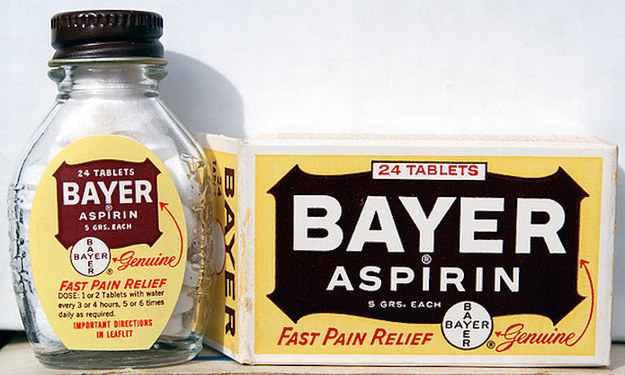Purple spots, all day, all the time?
Your skin is getting thinner with every passing year.
carophoto / Creative Commons / Via Flickr: 80248954@N00
Bruising happens when blood pools in your skin, outside of your blood vessels. As you age, you lose subcutaneous fat and collagen under the top layer of skin. This can make your blood vessels more susceptible to trauma — causing you to bruise more often. “Think of styrofoam peanuts around crystal glasses, where the peanuts are the collagen and subcutaneous fat, and the glasses are your blood vessels,” Los Angeles-based dermatologist Dr. Rebecca Fitzgerald tells BuzzFeed Life. “When there’s not as much packing the blood vessels in, you tend to get injured from more minor traumas.”
Too much sun, not enough sun screen.
UV rays can damage your skin — no surprises there. But that means that it can also damage your skin’s ability to repair itself. “Chronic sun exposure will degrade the support structure around the blood vessels,” making them more susceptible to trauma, Dr. Adam Friedman, assistant professor of medicine (dermatology) at Montefiore Albert Einstein College of Medicine at Yeshiva University, tells BuzzFeed Life.
You take aspirin or other blood thinners.

roadsidepictures / Creative Commons / Via Flickr: roadsidepictures
Meds like this make it harder for your blood to clot, Fitzgerald says. That means that when you bang your arm or leg, your blood vessels will bleed a little bit longer than they normally would, forming bruises more easily. Aspirin is the biggest culprit, Friedman says.
You lift, bro.

Yobro10 / iStockphoto / Getty Images
Working out and lifting weights can cause you to strain or push down on your muscles. Friedman says this can occasionally cause some of the smaller, weaker blood vessels to rupture, resulting in seemingly inexplicable bruising.
You aren’t getting enough vitamin C.

stefelix / Creative Commons / Via Flickr: stefelix
Vitamin C is essential for collagen cross-linking, Friedman says — where the collagen in your skin creates the necessary support structure around your blood vessels. When you don’t get enough vitamin C, you’re degrading the support around the blood vessels and you might bruise more easily.
You might have an infection that you should get checked out.

WebSubstance / iStockphoto / Getty Images
It’s rare, but sudden and easy bruising can be a symptom of certain infections, Friedman says. “Don’t just assume a bruise is a bruise. If you’re seeing a lot of them, feeling sick, and this is a new development, that can be a warning sign,” he says. Go to the doctor if this sounds familiar.
You are super pale and bruises show up more easily on your skin.

Universal Pictures / Via the-deceptacon.tumblr.com
It could be that there’s nothing particularly unusual about how much or how often you bruise — it might just be that bruises show up more easily on your skin because you are as pale as Casper the Friendly Ghost.
You are actually just really clumsy and you don’t even realize it.

Banging your shins into tables and bed frames is a pain, but you might not even remember doing it an hour later. So when the bruise shows up the next day (or even a few days later) you’re all: WTF? It’s not because there’s anything wrong with you, it’s just because you need to pay more attention to where you’re going. Just something to think about!


















